
Discover the Enigmatic Charm of Halabja Governorate
Nestled in the heart of Iraqi Kurdistan, Halabja Governorate is a region rich in history, culture, and natural beauty. Known for its tragic past, the area has transformed into a symbol of resilience and hope. Visitors can explore the Halabja Monument and Museum, a poignant tribute to the victims of the 1988 chemical attack, offering profound insights into the region's history and the strength of its people. Beyond its historical significance, Halabja Governorate is blessed with stunning landscapes. The surrounding mountains and valleys are perfect for hiking and nature walks. The lush greenery, especially in the spring, is simply breathtaking. Nearby, the Ahmed Awa Waterfall is a must-see, offering a serene escape and a chance to connect with nature. The local culture is vibrant and welcoming. Traditional Kurdish hospitality ensures that visitors feel at home. The local cuisine, with its rich flavors and unique dishes, is an experience in itself. Don't miss out on trying dolma, kebabs, and the famous Kurdish bread. The local markets are also a great place to explore, where you can find handmade crafts and souvenirs to take back home.
Local tips in Halabja Governorate
- Visit in spring or autumn for the best weather and most vibrant landscapes.
- Respect local customs and dress modestly, especially in rural areas.
- Hire a local guide for an enriched experience and deeper understanding of the region.
- Try to learn a few basic Kurdish phrases; locals appreciate the effort.
- Ensure you have a reliable means of transportation, as public transport can be limited.
Discover the Enigmatic Charm of Halabja Governorate
Nestled in the heart of Iraqi Kurdistan, Halabja Governorate is a region rich in history, culture, and natural beauty. Known for its tragic past, the area has transformed into a symbol of resilience and hope. Visitors can explore the Halabja Monument and Museum, a poignant tribute to the victims of the 1988 chemical attack, offering profound insights into the region's history and the strength of its people. Beyond its historical significance, Halabja Governorate is blessed with stunning landscapes. The surrounding mountains and valleys are perfect for hiking and nature walks. The lush greenery, especially in the spring, is simply breathtaking. Nearby, the Ahmed Awa Waterfall is a must-see, offering a serene escape and a chance to connect with nature. The local culture is vibrant and welcoming. Traditional Kurdish hospitality ensures that visitors feel at home. The local cuisine, with its rich flavors and unique dishes, is an experience in itself. Don't miss out on trying dolma, kebabs, and the famous Kurdish bread. The local markets are also a great place to explore, where you can find handmade crafts and souvenirs to take back home.
When is the best time to go to Halabja Governorate?
Unmissable attractions to see
Ahmad Awa
Discover Ahmad Awa: Sulaymaniyah's stunning natural attraction with cascading waterfalls, lush landscapes, and serene riverbanks.
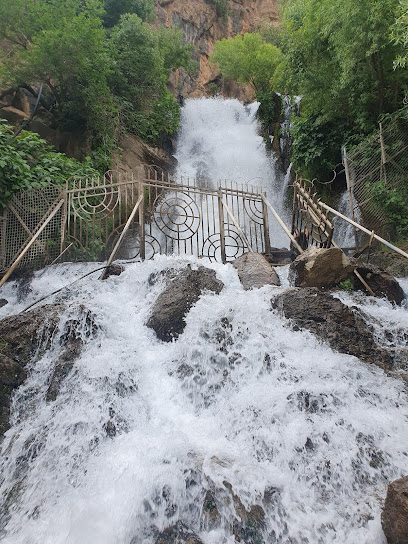
Halabja Monument
A place of remembrance and reflection, honoring the victims of the Halabja chemical attack and the resilience of the Kurdish people.
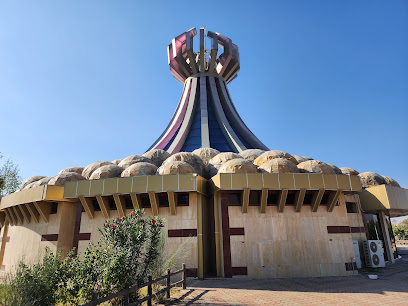
باخچەی ناو بازاڕ
Escape to Halabja's green heart: Relax and unwind in the city's central park, باخچەی ناو بازاڕ.
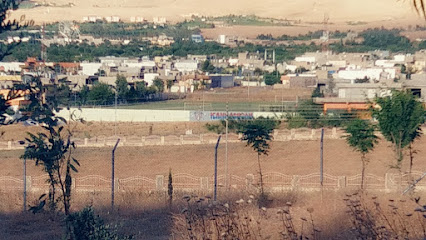
Shadi Park
Discover tranquility in Halabja at Shadi Park, a lush green oasis with vibrant flora and stunning mountain views, perfect for relaxation and recreation.
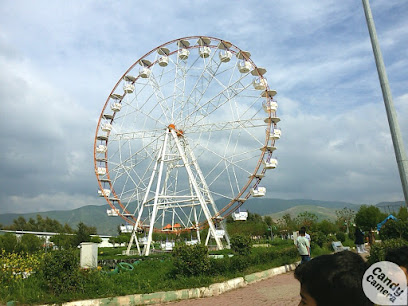
سەیرانگای هەواری چاوگ
Discover serenity at Hawari Chawg Park in Sulaymaniyah: lush greenery, peaceful paths, and a tranquil escape into nature's beauty.
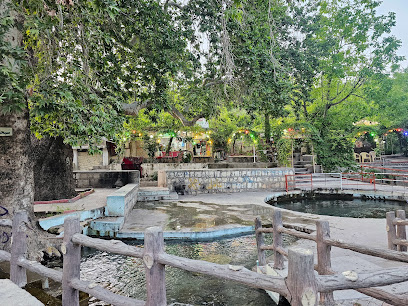
Halabja General Garden
A serene park in Halabja offering a green escape for relaxation, picnics, and cultural experiences in the heart of Iraqi Kurdistan.
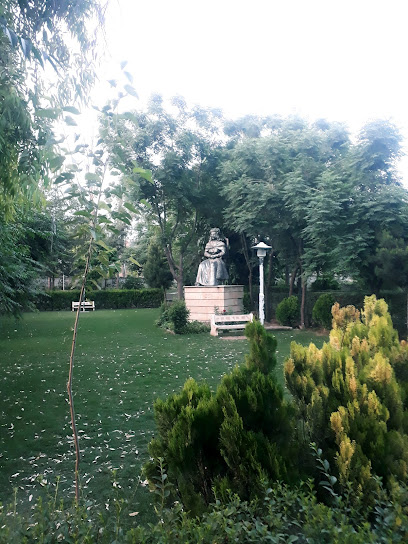
هاوینەهەواری زەڵم (مصیف احمد ئاوا)
Escape to Ahmad Awa Resort in Sulaymaniyah: Experience breathtaking waterfalls, lush landscapes, and Kurdish culture in a tranquil natural haven.
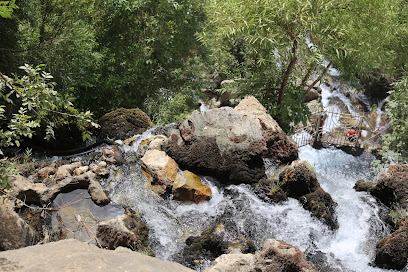
forest jalila دارستانی جەلیلە
Escape to the tranquility of Forest Jalila in Halabja, a natural retreat offering lush landscapes and peaceful recreational opportunities for all.
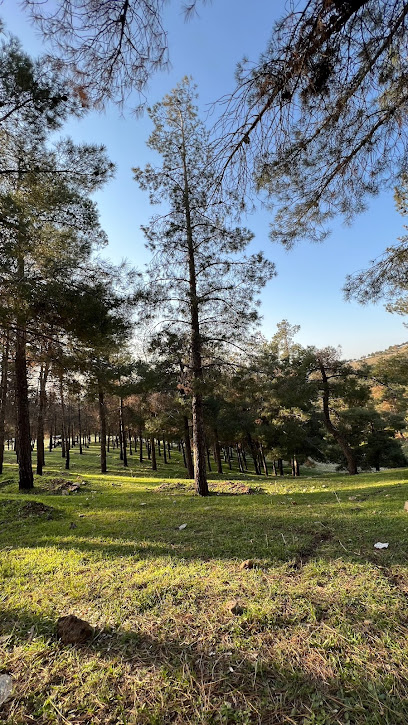
Garyat
Discover Garyat in Tawella: A scenic tourist attraction in Sulaymaniyah blending nature and Kurdish culture for a peaceful escape.
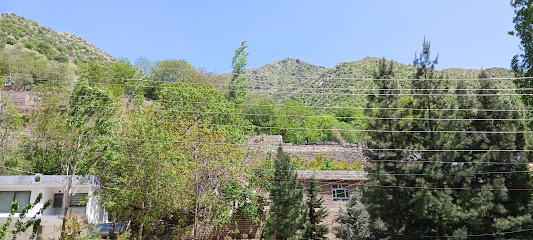
بیارەی شەریفە
Discover the tranquility of بیارەی شەریفە in Iraqi Kurdistan, a serene escape with cultural and spiritual significance.
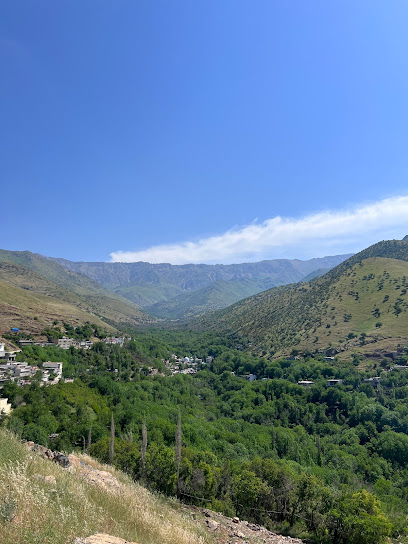
کانی عاشقان
Discover the beauty and tranquility of Kani Ashiqan, a natural spring near Halabja offering scenic views and a peaceful escape.
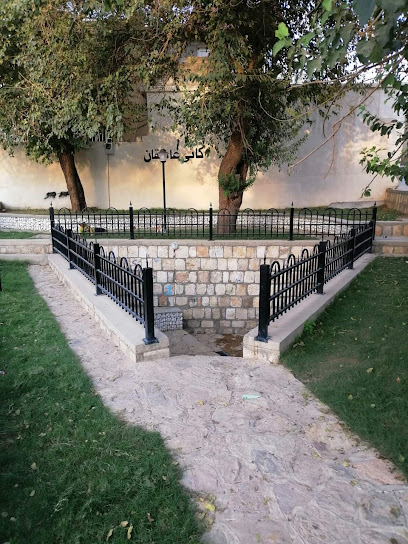
مسیف احمەد ئاوا
Discover Ahmad Awa: Sulaymaniyah's stunning waterfalls, lush landscapes, and Kurdish culture offer a refreshing natural escape.
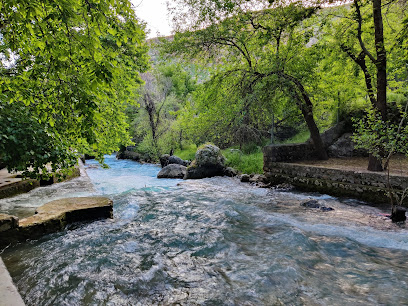
باخی ئاسۆ
Escape to tranquility at Bakhi Aso Park in Halabja, a serene green space perfect for relaxation and enjoying nature's beauty.
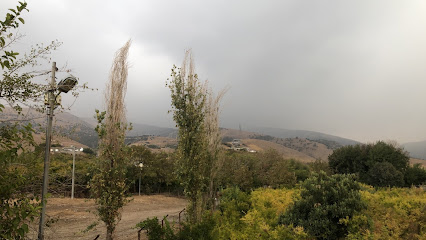
Bani kawer
Discover the serene beauty of Bani Kawer in Sulaymaniyah, a perfect escape into nature's embrace and local culture.
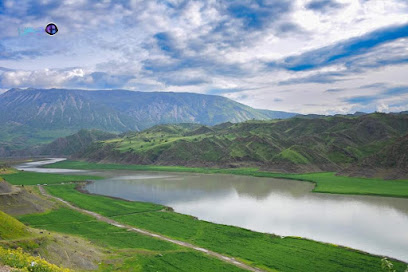
چاوگی ڕیشێن
Discover the serene beauty of Chawgi Rishen in Sulaymaniyah, a perfect natural escape with tranquil springs and scenic views.
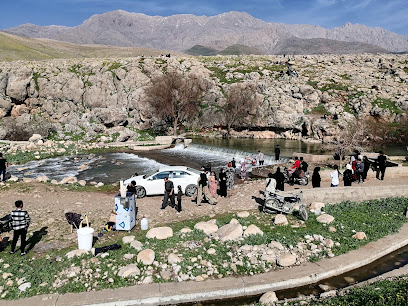
Essential places to dine
Hawraman restaurant
Discover authentic Iraqi cuisine at Hawraman Restaurant in Balkha - where tradition meets taste amidst stunning scenery.
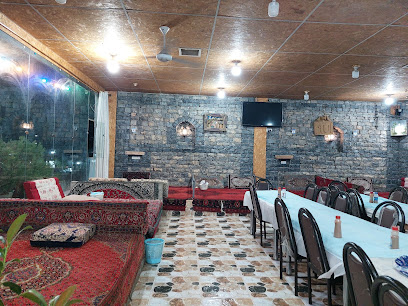
کەباب حەسەن
Experience Halabja's culinary delights at کەباب حەسەن, where authentic kebabs and local flavors come together in an inviting atmosphere.
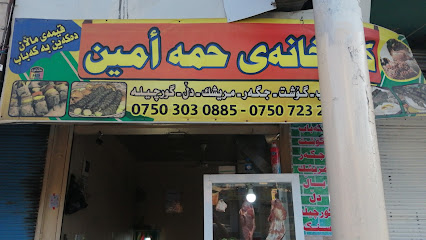
كباب وسط الشمال / كەبابخانەی وەستا شەماڵ
Experience authentic Kurdish flavors at Kebab Central in Byara – where every bite tells a story.
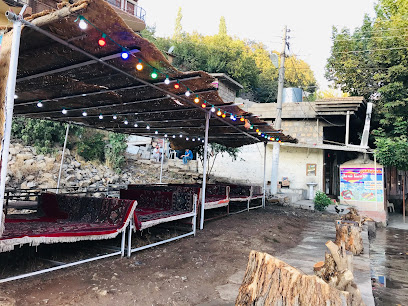
چێشتخانە و کەبابی کوردستان
Savor the rich flavors of authentic Kurdish cuisine at چێشتخانە و کەبابی کوردستان in Halabja.
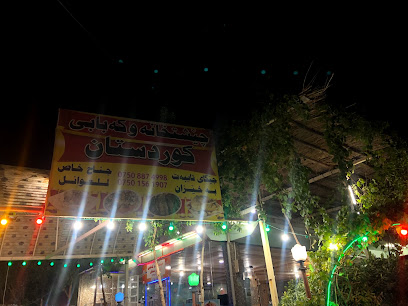
چێشتخانەی ئیمام
Discover the rich flavors of Kurdish cuisine at چێشتخانەی ئیمام in Halabja – a true taste of tradition.
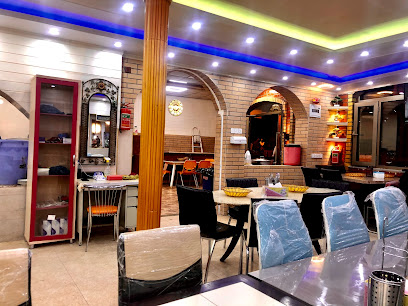
Halabja fast food
Experience Halabja's vibrant fast food scene with delicious local and international flavors in a welcoming atmosphere.
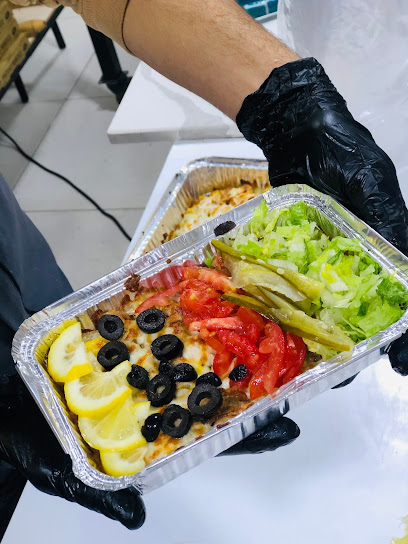
Markets, malls and hidden boutiques
سوپەر مارکێتی ڕێبوار
Explore سوپەر مارکێتی ڕێبوار in Halabja for a vibrant shopping experience with local products, culture, and delightful treats.
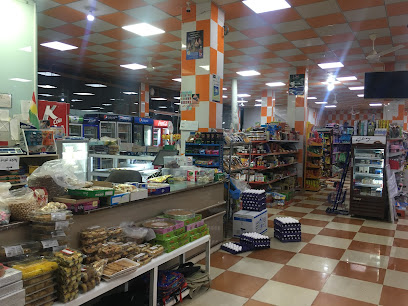
کۆمپیوتەری یاران
Discover cutting-edge technology and exceptional service at کۆمپیوتەری یاران, your premier cell phone store in the heart of Halabja.
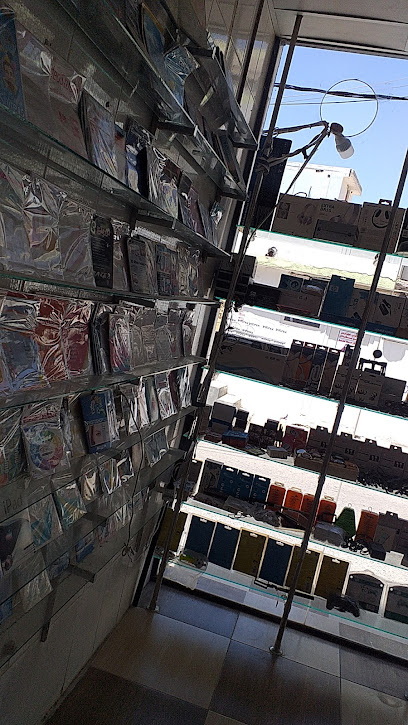
هەرزان بازاڕی جیهاد
Explore the vibrant هەرزان بازاڕی جیهاد in Halabja, where local culture meets unique shopping experiences filled with authentic treasures.
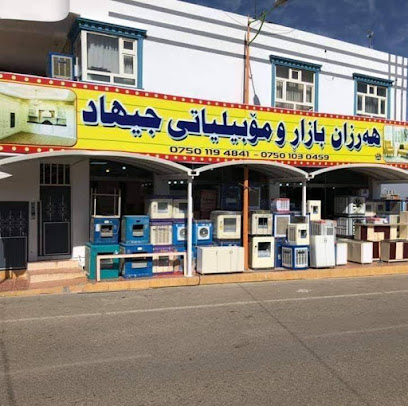
هۆم ستایل
Discover a vibrant shopping experience in Halabja at هۆم ستایل, where local culture meets modern retail in a unique setting.

baby model halabja بەیبی مۆدێل هەڵەبجە
Discover a delightful toy store in Halabja, where creativity and imagination come alive with a vast selection of quality toys for every child.
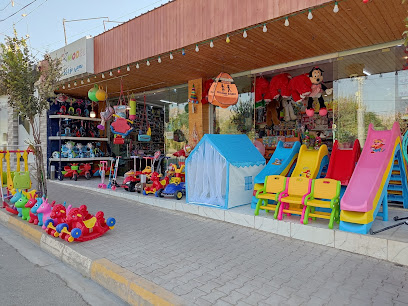
پێشانگای بالەی ئەوروپی
Discover the enchanting world of ballet at the European Ballet Showcase in Halabja, where artistry meets passion in a stunning array of dance treasures.
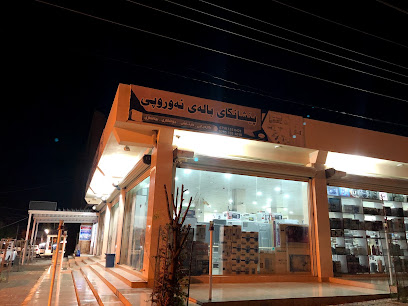
شیرەمەنی شێخ کاضم
Explore the Unique Offerings of شیرەمەنی شێخ کاضم - A Local Store in Halabja, Showcasing Kurdish Culture and Crafts.
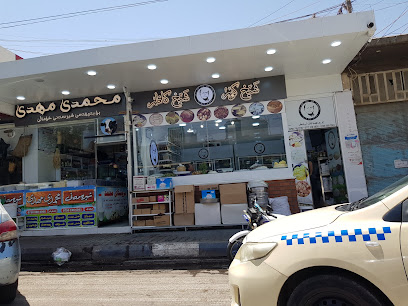
Phone shop
Discover the ultimate destination for mobile technology in Halabja, offering an extensive selection of smartphones and expert advice.
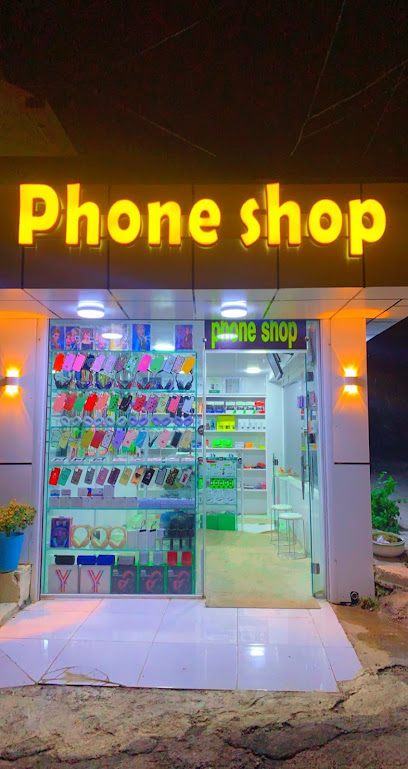
کوتاڵی ڕەوا
Discover Halabja's rich textile heritage at کُوتاڵی ڕەوا, a clothing store blending traditional and modern styles for every taste.
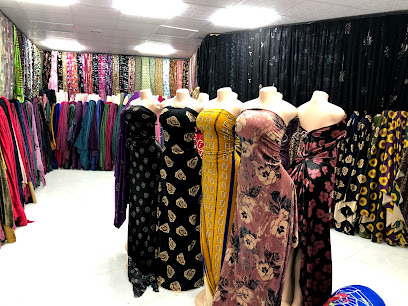
هەفتە بازاڕی ژێ کاف
Discover the charm of Hefta Bazaar in Halabja, where local flavors and vibrant culture come together in a delightful shopping experience.
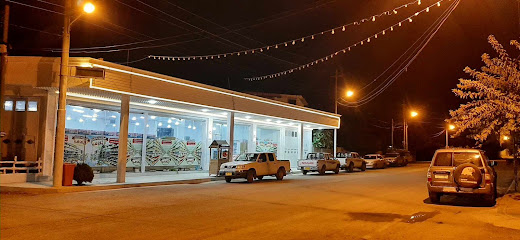
جوملەفرۆشی چەرەساتی ئەیووب
Explore the delightful world of local nuts at جوملەفرۆشی چەرەساتی ئەیووب in Halabja, where quality and tradition meet.
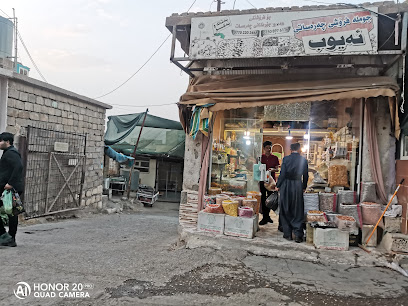
قوماشی لەندەن
Explore the rich tapestry of Kurdish fashion at قوماشی لەندەن in Halabja, where tradition meets contemporary style.
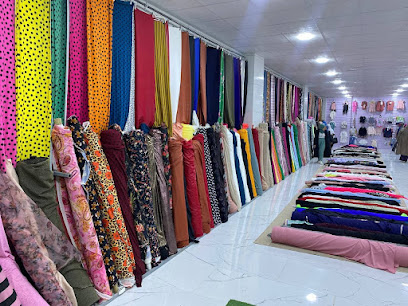
Wara Stationary halabja uni
Discover Wara Stationary in Halabja, a charming stationery store offering unique local products and a glimpse into the region's artistic spirit.

پۆشاکی سوید
Experience the vibrant culture of Halabja with unique clothing at پۆشاکی سوید, where tradition meets modern style.
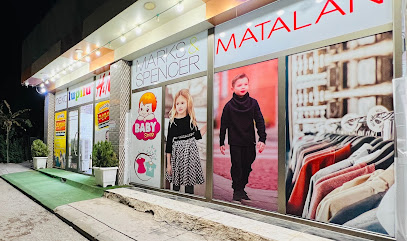
ماکیتی اڕۆ
Explore ماکیتی اڕۆ in Halabja for unparalleled local crafts and a vibrant shopping experience that embodies the spirit of the Sulaymaniyah region.
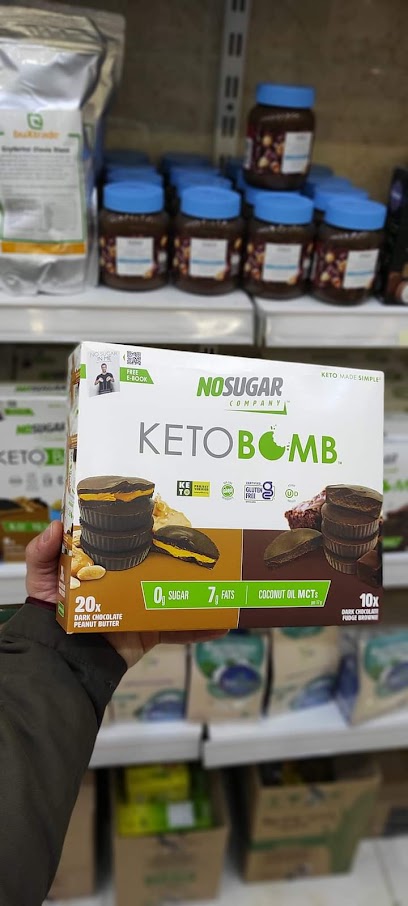
Essential bars & hidden hideouts
کەباب حەسەن
Experience the authentic taste of Middle Eastern cuisine at Kebab Hasan in Halabja, where every dish is a celebration of flavor.
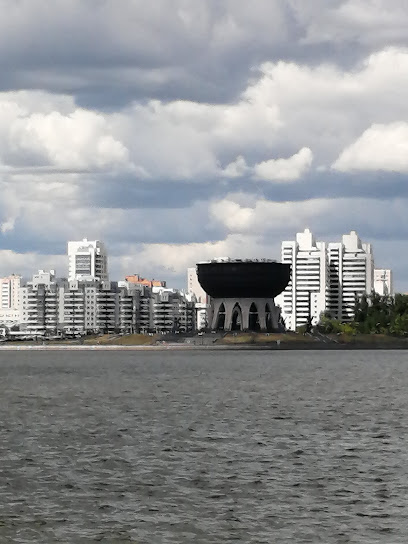
Xarpany
Experience the authentic taste of Kurdish cuisine at Xarpany, a beloved restaurant in Halabja, offering a delightful culinary journey.
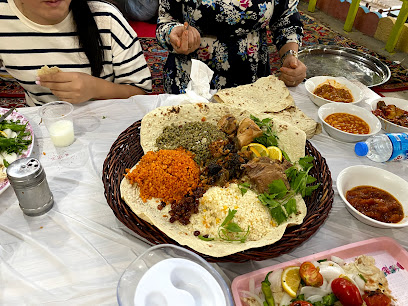
sofi bar
Discover the essence of Sulaymaniyah with gourmet grill dishes and a welcoming atmosphere at Sofi Bar, a must-visit culinary gem.

گازینۆوو کافترییای گەنجانی هەورامان
Experience the lively atmosphere and local flavors at گازینۆوو کافترییای گەنجانی هەورامان in Khurmal, a perfect spot for relaxation and socializing.
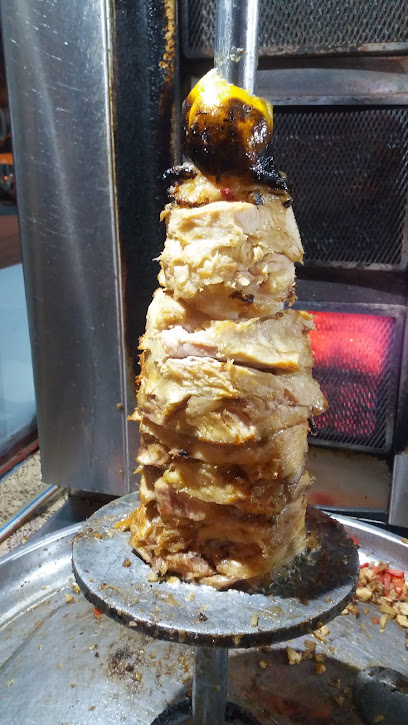
EFES
Experience the vibrant atmosphere of EFES, a must-visit bar in Penjwen, Sulaymaniyah, offering local drinks and a welcoming ambiance.
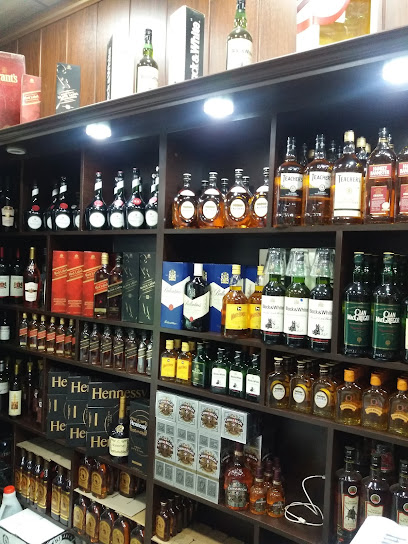
چێشتخانە و کەبابی کوردستان
Discover the authentic taste of Kurdish cuisine at چێشتخانە و کەبابی کوردستان, where delicious kebabs and warm hospitality await.
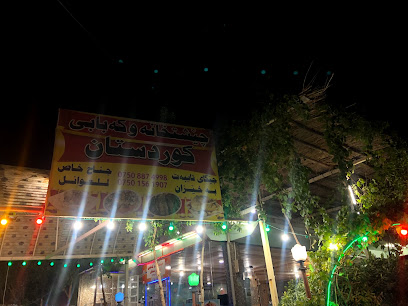
Xwardnaway Sirwan
Discover the inviting atmosphere and local flavors of Xwardnaway Sirwan, a must-visit bar in the heart of Darbandikhan.
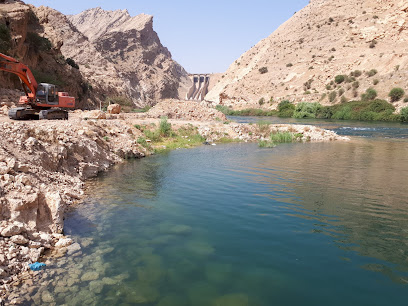
کەباب و برژاوی وەستا ئومێد
Experience the rich flavors of Kurdish cuisine at کەباب و برژاوی وەستا ئومێد in Halabja, where every dish tells a story.
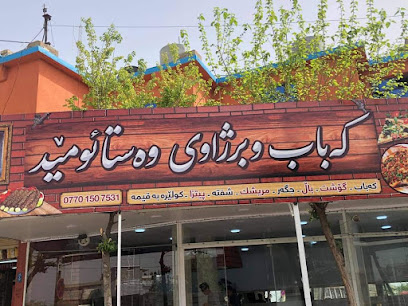
سيد صادق
Experience the vibrant bar scene in Said Sadiq, a hidden gem in Sulaymaniyah Governorate, perfect for relaxation and cultural immersion.
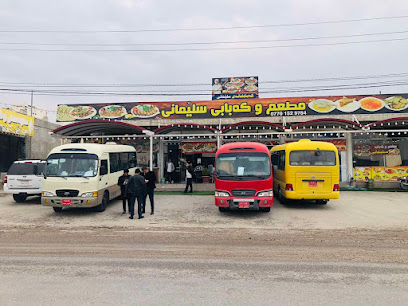
گەراجی جەعەی مام عسمان نرحب بکم
Discover the vibrant nightlife at گەراجی جەعەی مام عسمان نرحب بکم, a must-visit bar in Zalm, Sulaymaniyah, offering a blend of local culture and lively ambiance.
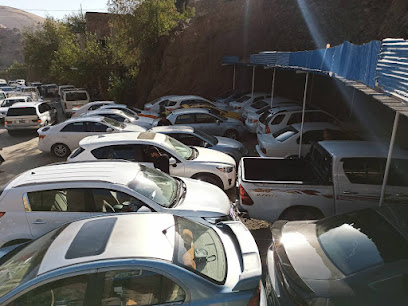
نادی سە ید سادق
Experience the essence of local culture at نادی سە ید سادق, a vibrant bar in Said Sadiq offering a delightful mix of beverages and hospitality.

لیۆ سپۆرت
Join the excitement at لیۆ سپۆرت, the ultimate sports bar in Sulaymaniyah, where every match feels like a celebration.
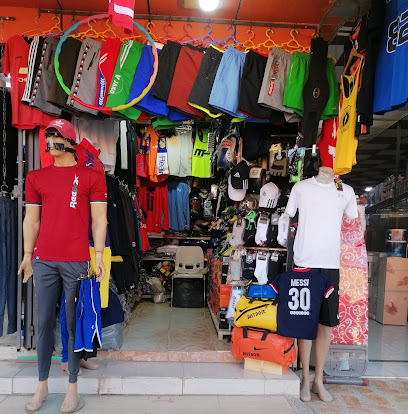
کەباب خانەی وەستا ئەمین
Experience authentic Kurdish cuisine at کەباب خانەی وەستا ئەمین in Halabja, where every dish tells a story of tradition and flavor.
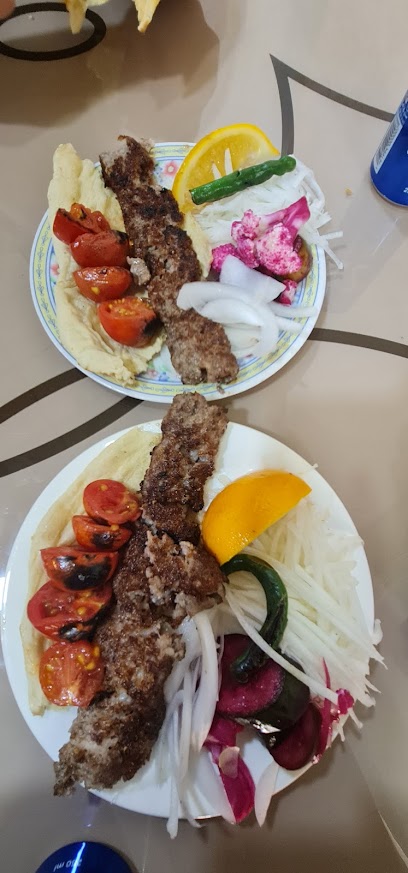
مری مەرە
Experience the vibrant nightlife of Halabja at مری مەرە, where local flavors and a welcoming atmosphere await you.

Local Phrases about Halabja Governorate
-
- Helloسڵاو
[Slaw] - Goodbyeبەردەست
[Berdest] - Yesبەڵێ
[Belle] - Noنەخێر
[Nakher] - Please/You're welcomeتکایە/خوازراوە
[Tkaye/Khwazrawe] - Thank youسوپاس
[Supas] - Excuse me/Sorryببورە/ببورەوە
[Bbore/Bborewe] - How are you?چۆنیت؟
[Chwnit?] - Fine. And you?باشە. تو؟
[Bashe. To?] - Do you speak English?ئینگلیزی دەنگت بکەی؟
[Englishi dengt bekey?] - I don't understandنەفەهمم
[Nafahmam]
- Helloسڵاو
-
- I'd like to see the menu, pleaseداواکردنی مێنیو دەمەوێت، تکایە
[Dawakrdni menu demewet, tkaye] - I don't eat meatمن گوشت ناخۆم
[Min gusht nakhom] - Cheers!خەیار
[Khayar] - I would like to pay, pleaseداواکردنی پارە دەمەوێت، تکایە
[Dawakrdni pare demewet, tkaye]
- I'd like to see the menu, pleaseداواکردنی مێنیو دەمەوێت، تکایە
-
- Help!یارمەتی!
[Yarmeti!] - Go away!دەرەوە!
[Derewe!] - Call the Police!پۆلیس بپێ!
[Polis bpe!] - Call a doctor!دۆکتۆر بپێ!
[Doktor bpe!] - I'm lostدەچمم
[Dechmam] - I'm illمن داغەم
[Min dagham]
- Help!یارمەتی!
-
- I'd like to buy...داواکردنی خەرید دەمەوێت...
[Dawakrdni kherid demewet...] - I'm just lookingمن تەنها دەخەم
[Min tenha dekhem] - How much is it?چەقدارە؟
[Cheqadare?] - That's too expensiveئەوە بەرزەقە
[Ewe berzeqe] - Can you lower the price?دەتوانی قیمەت کەم بکەی؟
[Detwani qeimate kem bekey?]
- I'd like to buy...داواکردنی خەرید دەمەوێت...
-
- What time is it?کام کاتە؟
[Kam kate?] - It's one o'clockکاتی یەکە
[Kati yeka] - Half past (10)نیسان لە (10)
[Nisan le (10)] - Morningبەیانی
[Beyani] - Afternoonناوەندی
[Navendi] - Eveningئێوارە
[Eware] - Yesterdayدوێنێ
[Doyene] - Todayئەمڕۆ
[Emro] - Tomorrowسەرەتا
[Sereta] - 11
[1] - 22
[2] - 33
[3] - 44
[4] - 55
[5] - 66
[6] - 77
[7] - 88
[8] - 99
[9] - 1010
[10]
- What time is it?کام کاتە؟
-
- Where's a/the...?کوێی ئەو/ی...
[Kwei awe/y...] - What's the address?ناونیشان چییە؟
[Navnisan chiye?] - Can you show me (on the map)?دەتوانی پیشانم بدەی (لەسەر نەخشە)؟
[Detwani pishanm bede (lese nakhe)] - When's the next (bus)?کاتێک وەرگرتووە (هۆتێل)؟
[Katek wargertuwe (hotel)?] - A ticket (to ....)پێشانگا (بۆ ....)
[Pishanga (bo ....)]
- Where's a/the...?کوێی ئەو/ی...
History of Halabja Governorate
-
Halabja Governorate, located in the northeastern region of Iraq, is nestled within the historical land of Kurdistan. The area has been inhabited since ancient times, with archaeological evidence suggesting settlements dating back to the Neolithic period. The region's fertile land and strategic location made it an essential part of the Mesopotamian civilizations, often caught between the influences of the Assyrians, Medes, and Persians.
-
During the Ottoman Empire, Halabja was a significant administrative center in the Kurdish region. The Ottomans ruled the area from the 16th century until the early 20th century, bringing with them a blend of cultural influences and administrative practices. The city of Halabja grew in importance as a hub for trade and culture, with caravans passing through on their way to and from Persia and the Levant.
-
Following the defeat of the Ottoman Empire in World War I, Halabja and the surrounding region came under the British Mandate of Mesopotamia. The area was later incorporated into the newly formed state of Iraq in 1932. This period was marked by significant political and social changes, as Kurdish leaders negotiated their place within the new national framework.
-
The rise of the Ba'ath Party in Iraq in the mid-20th century brought about severe repression for the Kurdish population. Halabja became a center of Kurdish resistance against the Iraqi government. The Kurdish Peshmerga forces frequently clashed with Iraqi troops in the region, leading to widespread turmoil and displacement.
-
One of the most tragic events in Halabja's history occurred on March 16, 1988, during the Iran-Iraq War. The town was subjected to a chemical weapons attack by the Iraqi regime under Saddam Hussein. Thousands of civilians were killed, and many more suffered long-term health consequences. The attack is widely regarded as one of the most egregious acts of violence against a civilian population in modern history and has become a symbol of Kurdish suffering and resilience.
-
After the fall of Saddam Hussein in 2003, Halabja began a slow process of recovery and rebuilding. The Kurdish Regional Government (KRG) has played a significant role in the redevelopment of the area, investing in infrastructure, healthcare, and education. Halabja has since become a symbol of Kurdish identity and resistance, with memorials and museums dedicated to preserving the memory of the chemical attack and promoting peace and reconciliation.
-
Halabja Governorate is rich in Kurdish cultural heritage. The area is known for its vibrant traditions in music, dance, and crafts. The annual Nawroz (Kurdish New Year) celebrations are particularly significant, drawing visitors from across the region to partake in festivities that include traditional music, dancing, and feasting. The local cuisine, marked by dishes such as dolma, kebabs, and various forms of bread, offers a delicious insight into the region's cultural tapestry.
Halabja Governorate Essentials
-
Halabja Governorate is located in the Kurdistan Region of Iraq. The nearest international airport is Sulaimaniyah International Airport (ISU), approximately 80 kilometers away. From Sulaimaniyah, you can take a taxi or a private car to Halabja, which typically takes around 1.5 to 2 hours by road. There are also shared taxis and minibuses (known as 'savaris') available from Sulaimaniyah to Halabja.
-
Halabja itself is relatively small, and many attractions are within walking distance. For longer distances, local taxis are readily available and reasonably priced. Public minibuses connect Halabja with nearby towns and villages. Renting a car is another option for those who prefer to explore at their own pace; however, be aware that road conditions can vary.
-
The official currency in Iraq is the Iraqi Dinar (IQD). While some hotels, restaurants, and shops in Halabja accept credit cards, it is advisable to carry cash, especially in smaller establishments and rural areas. ATMs are available, but it's wise to withdraw sufficient cash in Sulaimaniyah before traveling to Halabja.
-
Halabja is generally safe for tourists, but standard precautions should be taken. Avoid walking alone at night in unfamiliar areas and be vigilant with your belongings in crowded places. While Halabja does not have specific high-crime areas targeting tourists, it is always best to stay aware of your surroundings and follow local advice.
-
In case of emergency, dial 104 for police assistance. Medical facilities are available in Halabja, but for serious medical issues, it may be necessary to travel to Sulaimaniyah. It is recommended to have travel insurance that covers medical emergencies. For minor health issues, there are pharmacies in the town where you can purchase over-the-counter medications.
-
Fashion: Do dress modestly, especially when visiting religious sites. Avoid wearing revealing clothing. Religion: Do respect local customs and traditions. Always remove your shoes when entering mosques. Public Transport: Do be respectful and give up your seat to elderly passengers. Don't eat or drink on public transport. Greetings: Do greet people with a handshake. A slight bow of the head is also a sign of respect. Eating & Drinking: Do try local Kurdish delicacies and accept food offerings graciously. Don't refuse hospitality, as it is considered impolite.
-
To experience Halabja like a local, visit the local markets where you can buy fresh produce and traditional Kurdish goods. Engage with locals, as they are often friendly and willing to share stories about the town's history and culture. Don't miss visiting the Halabja Memorial Monument and Museum to understand the historic significance of the area. For a unique experience, take a hike in the surrounding mountains, offering breathtaking views and a chance to see local wildlife.
Nearby Cities to Halabja Governorate
-
Things To Do in Kirkuk
-
Things To Do in Erbil
-
Things To Do in Baghdad
-
Things To Do in Mosul
-
Things To Do in Dohuk
-
Things To Do in Karbala
-
Things To Do in Najaf
-
Things To Do in Amara
-
Things To Do in Kapan
-
Things To Do in Goris
-
Things To Do in Vayk
-
Things To Do in Jermuk
-
Things To Do in Basra
-
Things To Do in Yerevan
-
Things To Do in Ali Bayramli






